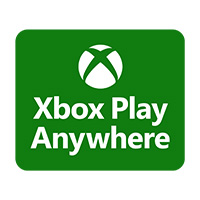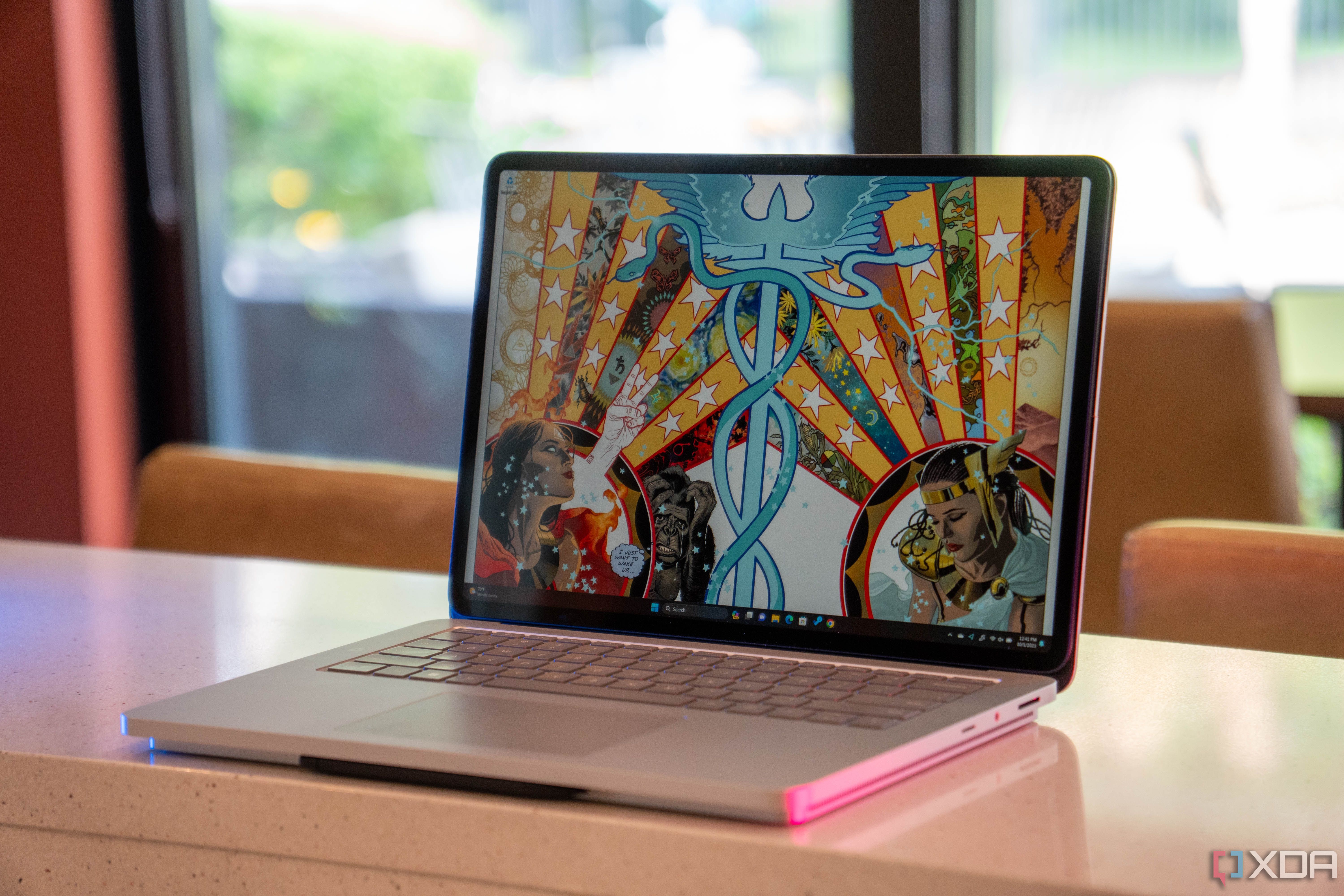they clearly won't have a closed system. IMO
my prediction is this:
I think it becomes more and more likely that they will almost exactly copy the concept of the Steam Deck.
they will probably create a Game Mode for Windows 11 that allows you to boot into a controller friendly environment, but allows you to go onto the desktop to use a normal windows PC.
and that will then be the basis for how their next gen systems work.
they will heavily push their own store, probably offering "Xbox Optimised" games where developers can get verified by offering a mode that uses settings that work out of the box and detect you play on the Home Console or the Handheld like a console game.
this also will probably help improve the presence of their store on actual PCs. all games you buy on your Xbox will work on any PC, work on both their next gen systems, and will seamlessly share saves, achievements, online features etc.
it will finally truly unify their PC and Console games
This is something of an idea that I also had a while ago, and while I think they'll ultimately do something like this, probably won't be for what they have planned coming up.
Like, a Game Mode for Windows will eventually happen where it can be a 1:1 equivalent to the Xbox OS's UI, and running only the necessary Windows code, drivers and utilities for gaming (and some multimedia) tasks. But them then using it to push Game Pass & their own storefront with "Xbox Optimized" games on PC could become a problem similar to how MS leveraged Windows API exclusivity for their own products against competitors like Netscape back in the '90s.
MS don't want to go down that road making that push for what's supposed to be an open platform (PC), even if Windows itself is closed-source. Because again, the antitrust suit back in the '90s established the precedent that MS can't do that type of thing on an open standard like PC even if it's their own OS, since Windows dominates so much of the PC OS market share (especially for gaming).
Even so, whatever they do for the next Xbox devices, will inevitably help with gaming side on Windows proper and could, as you said, also help with presence of their store and Game Pass on PC via synergy.
Pretty much. That's why I'm eager to see what Sony and Microsoft have planned if these handheld rumors are true. Both will be limited as far as what they can run so how do they tackle that? Software solutions? Cloud? It's going to be interesting.
I only see this working if they're not targeting the average Madden Mikey's and COD Joe's with the handheld device. I'm guessing the 'traditional' console is aimed at them, while the handheld is aimed at us neckbeards.
But if the next-gen hardware is going to be priced higher a la PS5 Pro then the Madden & COD players will have even less reason to buy them early on since those games will still be cross-gen for a period, and those types of players aren't completely fussed about having pinnacle console gaming performance. They're on the more price-conscious side and it might take a while for many of them to "get used" to a $499 price drop 3-4 years in as the new $299 price drop.
I'd figure the "console" (PS6 will probably be a fully traditional console business model-wise; next Xbox not so much) would be the higher-priced option while the respective handhelds are cheaper since their portability would appeal to a larger market segment.
I'm actually more curious what Sony will do for the console & handheld because if MS do what I think they'll do (if they're smart about it), then technically Xbox will have not just Xbox, but also Steam, EGS, GOG etc. games to play plus maybe emulators of other platforms (likely not Nintendo & Sony, tho; they might legally prevent that) whitelisted through some version of Windows Store on Xbox. That'd be a good amount of value-add that SIE can't really match due mainly to not owning Windows or running a version of Windows (Xbox OS is a modified version of Windows kernel).
For example let's say Sony's rumored handheld comes around PS6's time (so maybe mid/late 2027 earliest, 2028 more likely); it's $399 and plays games at native PS4/PS4 Pro settings undocked; PS5 settings docked (dock sold separately: $149). 16 GB RAM, has some profile to play downscaled PS6 games via lots of custom AI-accelerated silicon. BC with PS5/4/3/2/1/Vita/PSP via mix of native & cloud streaming options depending on preference and/or performance targets (some emulated PS3 games might not natively run on it that well when it's in handheld/non-docked mode for example).
Meanwhile, Xbox releases their handheld earlier (2026), it's $499. Plays games at native Series S settings, comes with 16 GB RAM. Plays Xbox Series, XBO, 360 & OG Xbox games (at least any made playable through the BC program); also can natively play Steam, EGS, GOG etc. games at Series S profile if user has the necessary Game Pass subscription tier. Price drop to $399 closer to PS portable's launch. Optional passive dock ($99; with GPU and/or storage installed becomes active dock) for official/1P Xbox low-profile GPU cards (sold separately).
Then we get to the console side; PS6 in 2028 probably $599 (512 GB) & $699 (1 TB); 32 GB RAM, maybe a PS5 Pro + 50% in TF (25 - 27 TF FP 32 compute, maybe 30 TF pushing it) but much better RT, AI-accelerated hardware, new accelerated technology (auto-LOD generation/culling based on framebuffer analysis, for example). Disc drive sold separately (new model $69 for PS6/5/4 discs; $149 for PS6/5/4/3/2/1 discs, Vita & PSP discs, legacy PS1 & 2 peripheral support). Full PS gaming family BC support. Compatible with PS portable's dock (sold separately; $149) for some slight performance boosts to PS6 games and maybe various non-essential port expansions (extra USB ports, extra HDMI Out (this one used to send final image from PS6 to TV when dock attached) DisplayPort, extra ethernet port etc.).
Meanwhile, next Xbox "console" releasing in late 2026 (a bit after the handheld), likely 1 TB storage, costs $799 - $899. 16 GB system RAM (upgradable to 64 GB), 24 GB VRAM on the GPU, GPU likely PS5 Pro + 15% in raw TF (~ 20 TF). Support for RT & other advanced features, just less advanced than PS6 in these areas & less custom GPU. No disc drive; compatible with 3P Blu-Ray external (maybe internal, depending on form factor) drives though. Compatible with passive dock ($99), supporting official/1P Xbox low-profile GPU cards (various $$$; with GPU and/or storage installed becomes active dock). Upgradable PSU & cooler. Has some "Smart Configure" BIOS/UEFI-level feature that can automatically adjust clocks and thermal profiles of installed components for optimal performance levels relative PSU & fan/cooling setups. Integrated Windows Store for whitelisted Windows apps; access to Steam/EGS/GOG etc. via Game Pass subscription at certain tier.
It would be very interesting to see how the market takes to both groups of devices. IMO, unless Sony scaled back on their PC support (or nixed it altogether aside from some GAAS titles) they may have more of a problem against this type of Xbox than they'd picture, because MS can leverage Windows and get relatively "hassle-free" support of Steam, GOG, EGS etc. games plus emulators of various retro systems (likely not Sony or Nintendo systems however, due to legal reasons) via extended Windows support through Xbox OS (and for Steam/GOG etc., a Game Pass subscription to make up for some potential loss in B2P sales on the Xbox Store to those competing storefronts). That's in addition to the productivity software Xbox'd be able to run again due to the Windows angle.
Sony doesn't have that advantage and currently they don't even really have a software advantage since they've been porting almost everything to Steam the past four years. If they then also give up the pricing advantage (or just about do so, as we're seeing right now with PS5 Pro and the lack of price drops for PS5 which has in fact seen price increases this gen instead), they may lose out in terms of value proposition that's on grounds easier & more palatable to the market as a sell vs. Game Pass itself has been.
Their only real advantages from that point onward would be timed 1P exclusivity (which becomes less & less of an advantage the more platforms like Steam grow, which the next Xbox could benefit from via running Steam and Sony has ZERO way of blocking Steam on that Xbox if MS uses a PC style business model for it, to avoid directly competing with PlayStation), and volume of production. The latter bolstered in part due to PlayStation's brand strength globally versus Xbox (or Microsoft, really), which naturally necessitates more units of hardware to be manufactured.
Ironically Microsoft could end up, via strategy laid out here (at least in theory), make a product that in a fair/even market would be
more appealing than PlayStation (at least current/modern PlayStation) and thus sell more.
But, due to their
disastrous cock-ups with XBO and Xbox Series, have created market conditions for themselves which will always cap their ceiling much lower than PlayStation's in addressable market, at least for a good while and/or unless Sony just do a series of absolutely
monumental mistakes that ruin PlayStation's appeal globally.
Even so, at least taking this approach (plus maybe regular hardware refreshes every 3-4 years and letting OEMs license out variant builds), Microsoft could
potentially get back to 50-60 million lifetime trend over course of a generation, compared to the low 40s they're looking to finish out Xbox Series with (while having lost hundreds of dollars on each S & X they've been selling, at that). Meanwhile if Sony keeps to their current strategy of multiplatform & pricing, but do what seems they'll do in terms of a console/handheld approach next gen, they can probably still tap out a gen at ~ 90 - 100 million. But the days of 120 million or higher will be long gone.







